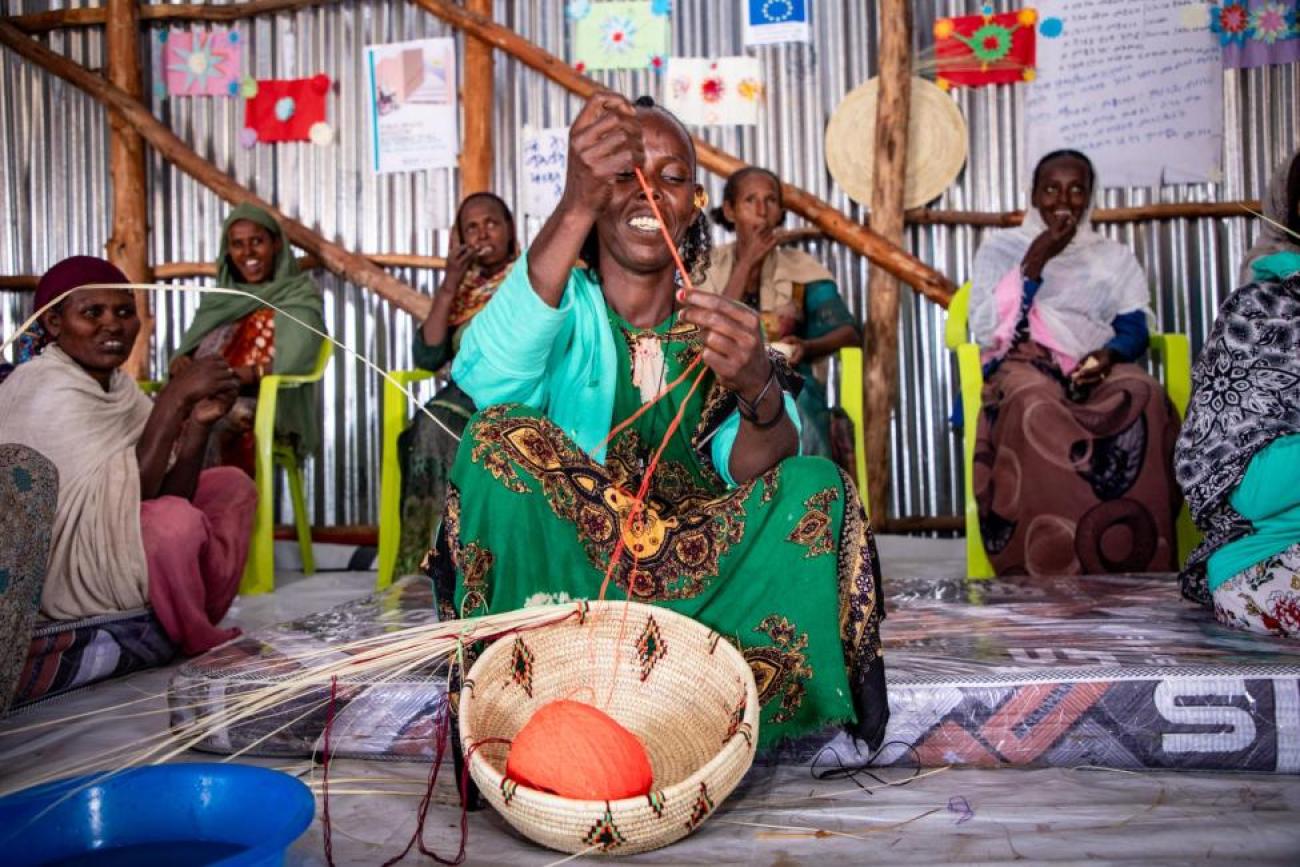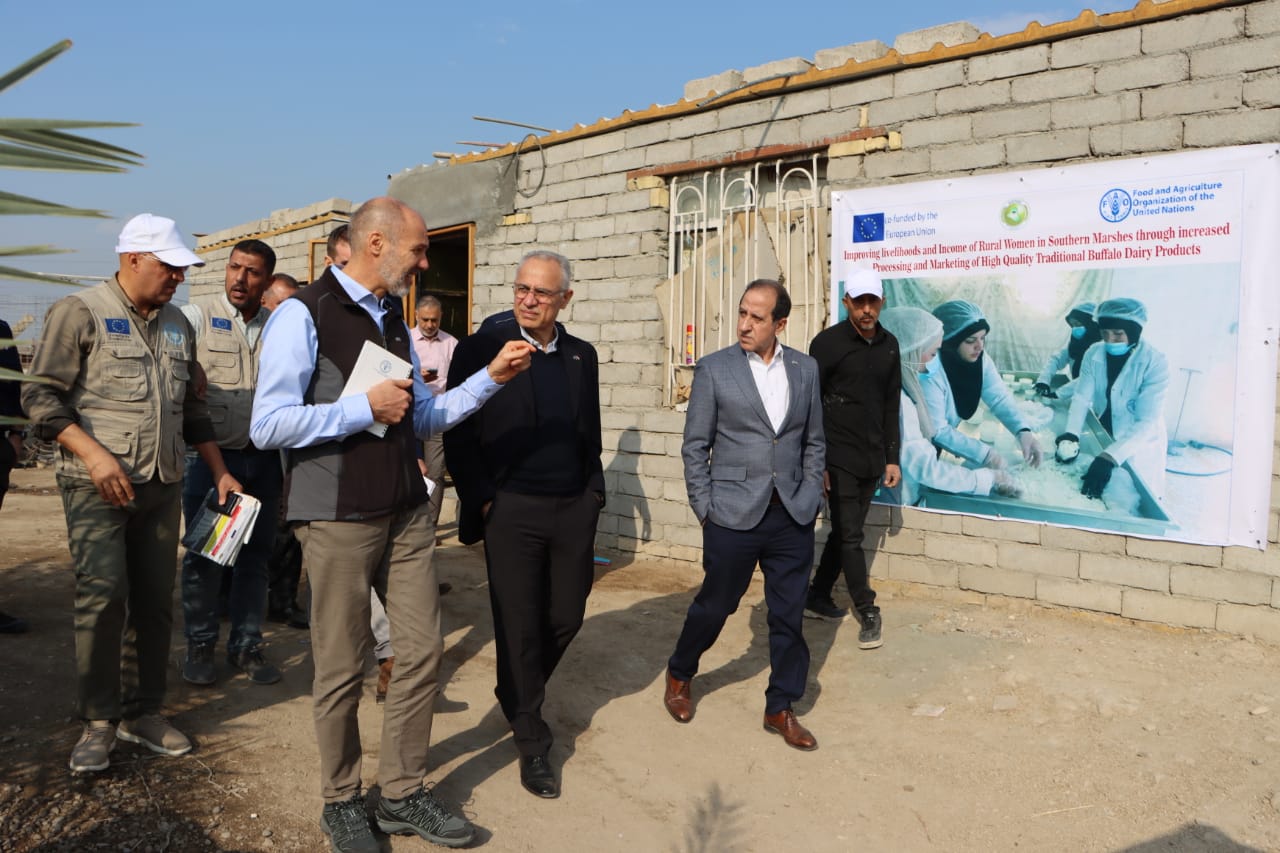Steering through Storms: Resident Coordinators Championing Development in the Face of Adversity

In some countries across the globe, the path to sustainable development is complicated by a convergence of complex circumstances. These countries grapple with the harsh realities of disasters and/or conflicts, the urgent demands of humanitarian crises, the instability of political transitions or a challenging combination of these factors, exacerbated by the escalating impacts of climate change and a soaring debt burden.
In these critical contexts, the UN Resident Coordinator (RC) system, working closely with relevant UN entities like the Office for the Coordination of Humanitarian Affairs (OCHA), the Department of Peace Operations (DPO) and the Department of Political and Peacebuilding Affairs (DPPA), serves as a vital catalyst in driving progress towards sustainable development. Resident Coordinators, as the most senior UN official of the UN development system, lead UN country teams with the crucial mission of coordinating the work to advance the 2030 Agenda for Sustainable Development, including response to immediate needs when disasters strike and humanitarian entities have no presence on the ground. Their leadership is paramount in ensuring the UN's response is unified, impactful and deeply attuned to the specific priorities of the countries they serve, even when the path seems most arduous.
The 2025 Report of the Chair of the UN Sustainable Development Group on the Development Coordination Office and the RC system, along with multiple independent evaluations, highlight the indispensable work of RCs. Six years after reforms strengthened the UN development system, RCs consistently demonstrated their capacity to bring together diverse partners and galvanise UN country teams to support countries as they navigate country-specific challenges.

Orchestrating coherent responses amidst crises
A defining feature of the Resident Coordinators’ role is their ability to weave together, as relevant, the strands of development, humanitarian support, and peacebuilding. Recent findings from the 2024 Office of Internal Oversight Services (OIOS) evaluation of the RC system in complex settings indicate that RCs have significantly fostered a more unified UN approach in these challenging contexts. This commitment to coherence is widely recognised: per surveys by the UN Department of Economic and Social Affairs (DESA), 87 per cent of both national governments and UN country team entities affirmed that RCs enhanced complementarity and coherence across these crucial efforts. Moreover, the surveys indicate that in countries where RCs wear multiple hats—serving as Humanitarian Coordinators (HC) and/or Deputy Special Representatives of the Secretary-General (DSRSG)—95 per cent of national governments acknowledged their strengthened ability to serve as a clear entry point to the full spectrum of UN support.
This leadership translates into tangible action on the ground. In Ethiopia, the RC/HC ensured a joint UN approach in supporting government efforts to find lasting solutions for internally displaced populations, ensuring that emergency relief was strategically aligned with long-term development objectives. The results of this coordinated approach are also evident in Chad. Here, the RC/HC successfully mobilised a wide array of partners to bolster the UN team's work, led by UNHCR, the UN’s Refugee Agency, in implementing the government's progressive asylum legislation.
Charting the course for long-term development
RCs play a pivotal role in guiding long-term development planning, ensuring that, even in the most challenging environments, progress towards the SDGs remains a central focus. A significant 74 per cent of government officials surveyed in these settings reported that the RC system was instrumental in helping to establish a national SDG agenda, as mentioned in the 2024 OIOS report. This underscores the Resident Coordinators’ crucial function in aligning UN efforts with national priorities for sustainable development.
In the Democratic Republic of Congo, by developing the 2025 Humanitarian Response Plan in concert with the longer-term 2025-2029 UN Sustainable Development Cooperation Framework, which is the primary instrument for planning and implementing UN development activities in partnership with the national government, the DSRSG/RC/HC enabled UN outcomes that not only address urgent needs but also build lasting resilience and support the country's own long-term development vision.
Similarly, in Iraq, a new Cooperation Framework for 2025-2029 signals a strategic pivot from humanitarian assistance towards sustainable, long-term development. This shift aligns with the country's national vision and a specific UN Security Council mandate, which directs a phased drawdown of the UN's political mission (UNAMI). This transition means that the UN’s engagement with the country is evolving, with an increasing focus on long-term development cooperation led by the RC and UN country team, in partnership with the Iraqi government to support the nation's own development path.
In a world striving to achieve the SDGs by 2030, the role of the Resident Coordinator system, particularly in complex settings, has never been more critical. Resident Coordinators are the linchpin, ensuring that the UN's diverse expertise and resources are effectively leveraged to support nations in realising their development aspirations, even when faced with profound adversity.
The impact outlined in the 2025 Report of the Chair of the UN Sustainable Development Group on the Development Coordination Office and the RC system reflects an unwavering commitment to adapting, innovating, and supporting UN entities to deliver for the people they serve. This ensures that the promise of eradicating poverty and leaving no one behind is pursued with vigour, even in the most turbulent of times.
Read the full 2025 Report of the Chair of the UN Sustainable Development Group on the Development Coordination Office and the RC system, which is also available in an interactive online format.













